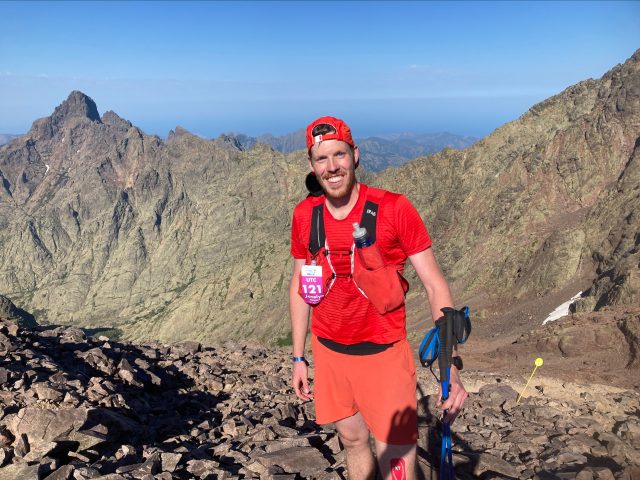
From First Steps to 385 Kilometres: The Story of a Runner’s Grit and Determination
In the world of endurance sports, few narratives capture the essence of human resilience and determination as vividly as Captain Jocelyn Roméo Bourque’s journey from a casual runner to an ultramarathoner conquering some of the world’s most challenging trails.
Capt Bourque joined the Canadian Armed Forces in 2014, finished school and pilot training in 2019 and has since been posted to 430 Tactical Helicopter Squadron at CFB Valcartier, Que.
Capt Bourque’s story begins modestly, with a pair of new shoes and a simple run, igniting a passion that saw him complete his first half-marathon in 2012. Each year pushed new boundaries as Capt Bourque scaled up from a full marathon to 50 milers, 100 kilometres and beyond, culminating in a remarkable 110-kilometre race. Capt Bourque recounted his first experience running, revealing the spark that ignited his motivated spirit.
“And then one day I bought new shoes,” Capt Bourque said. “Went for a run, did that again and I was like, ‘it’s only three times more than that, maybe I could do it.’”
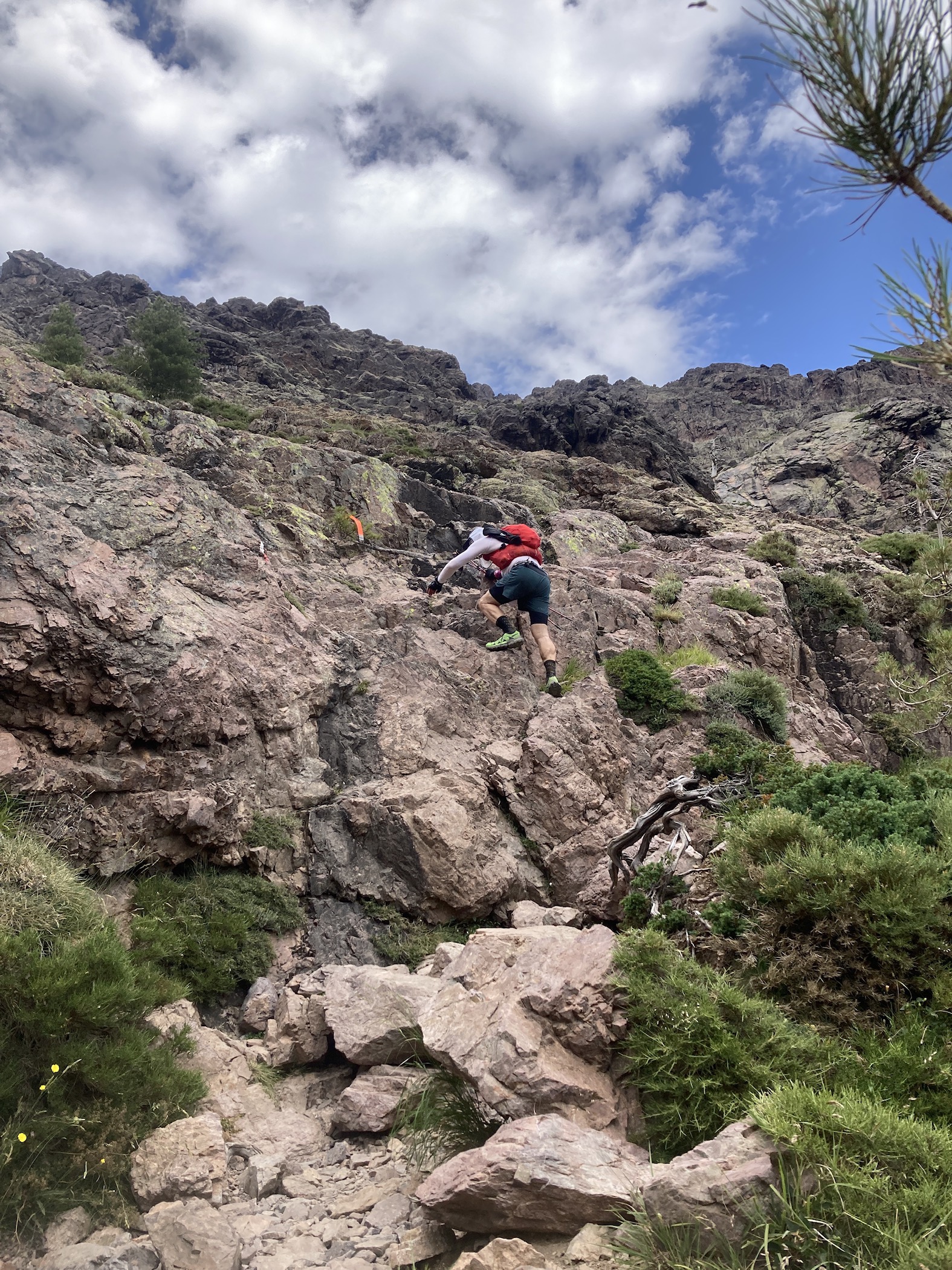
Known as the Ultra Trail di Corsica (UTC) and located in the mountains of an island of France next to Italy, Corsica features 7,200 meters of elevation gain with the trail spanning 110km.
On the evening of the race day heading out at 2300hrs on 9 July 2023, Capt Bourque represented Canada as the top Canadian participant finishing in the 114th position.
He was faced with fatigue from the late start time and constantly battled dehydration and heat exhaustion while navigating the rocky trails.
This race, however, was not just a test of distance but a formidable challenge of terrain and endurance. Capt Bourque navigated vast and complex trails, requiring both mental and physical agility.
“It was the longest I’ve ever run,” he said. “This trail was so brutally technical, that I couldn’t really switch off my brain.”
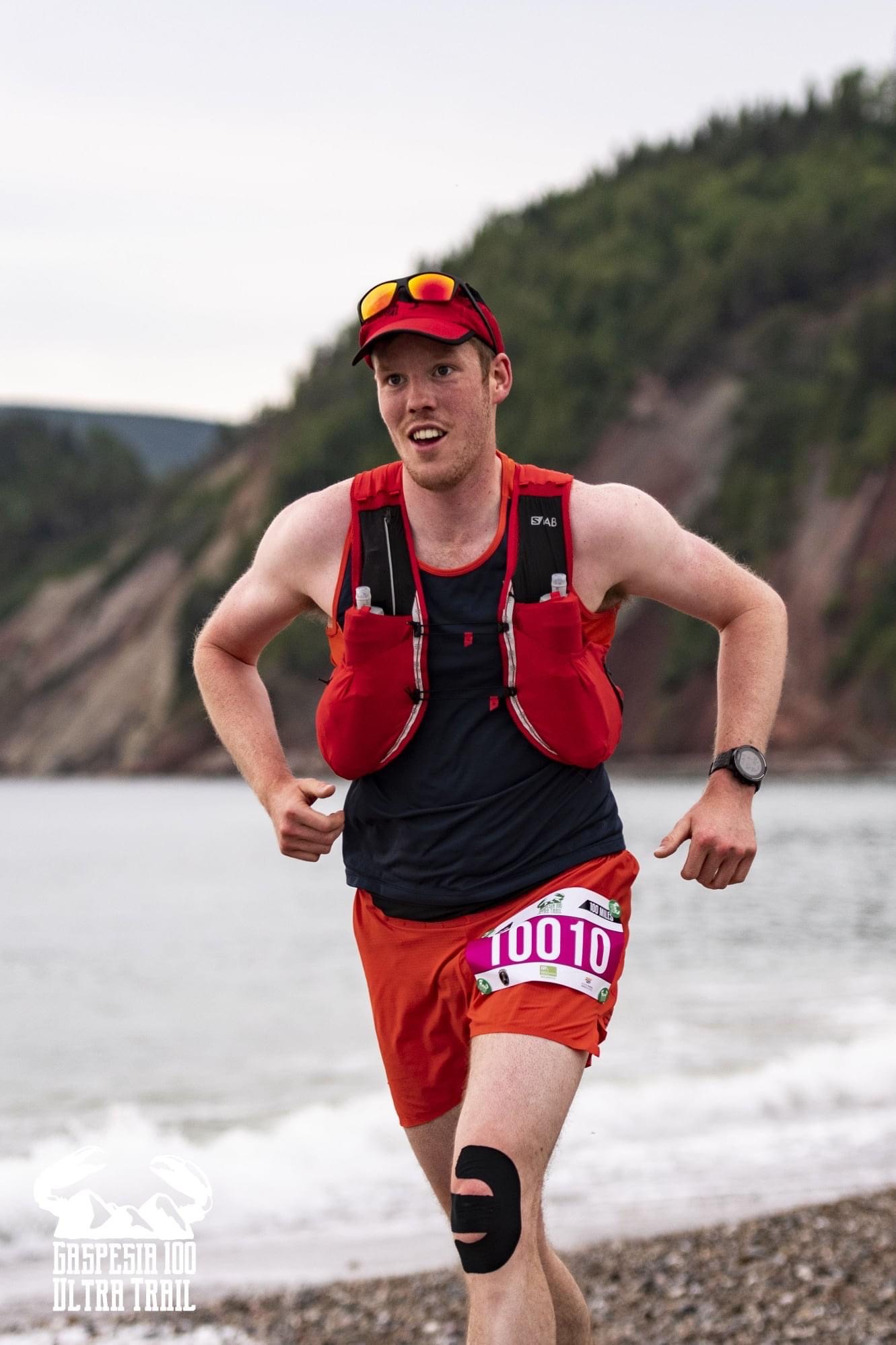
Unlike previous races this one was grueling, demanding several strategic naps during the near 34-hour ordeal, while rain and darkness added an element of psychological termoil.
What sets Capt Bourque’s experience apart is not just the distances covered, but his raw and unfiltered confrontation with personal limits. He can vividly recall multiple moments of doubt, the urge to quit and the highs and lows intrinsic to such an arduous journey.
“I’ve never wanted to quit a race so bad. I’ve never wondered why I was there so bad,” he said.
Preparation for such races, according to Capt Bourque, goes beyond physical training. Residing in a flat area, he improvised with hill repeats in local spots, reflecting the creativity and determination required for such endeavors. But more crucially, he emphasized the mental aspect, the need to push through and keep moving, a philosophy he applies to all aspects of life.
“A lot of it is more mental than physical,” said Capt Bourque. “There’s definitely a physical aspect. But at the end of the day, especially at this distance, it’s mostly walking.”
Capt Bourque’s military background provided a unique perspective on discipline and mental strength, yet he credits running with enhancing his performance in the military rather than the other way around.
“My performance in the military has been more positively influenced by my running than vice versa,” he explained.
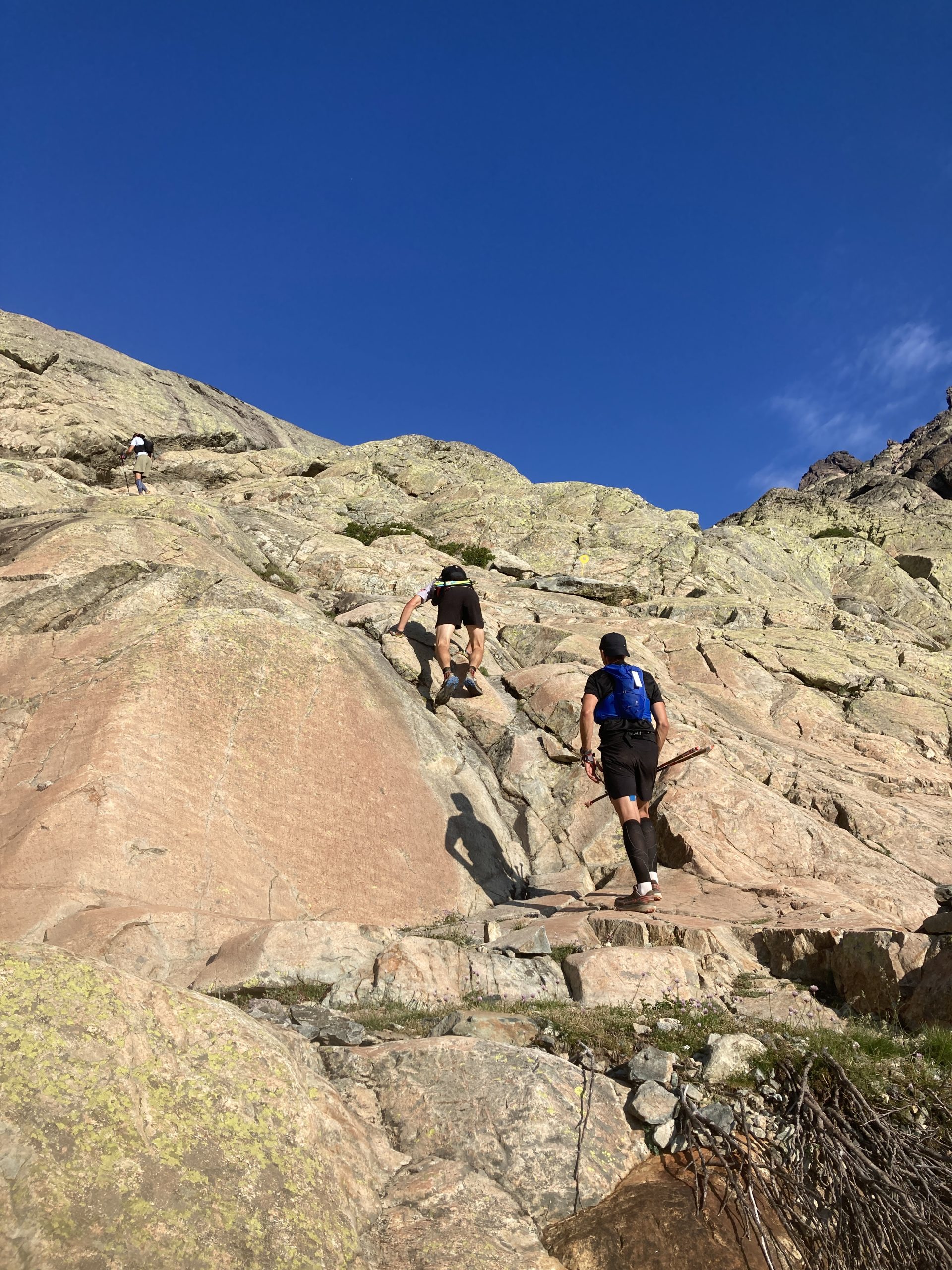
Capt Bourque revealed the raw emotion and relief at crossing the finish line after such a monumental effort, finishing at 33 hours, 39 minutes and 9 seconds. The race against time, the rush to meet deadlines and the sheer exhaustion only accentuate the achievement’s enormity.
“I was just so happy to be done,” Capt Bourque recalled.
In reflecting on his journey, Capt Bourque offered insights into the broader implications of his experience. The race humbled him, challenging preconceived notions of his abilities and forcing a reassessment of his approach to ultramarathons.
“It humbled me,” he admits, “This was the closest to my breaking point that I’ve ever been, and I made it through.”
Capt Bourque’s story is not just about running. It’s about facing life head-on, embracing the unknown and discovering strength in adversity. It’s a narrative that resonates beyond the trails, inspiring others to confront their challenges, whether in athletics, personal endeavors or the pursuit of seemingly unattainable goals.
His most recent achievement is his “biggest running event to date”, taking over 89 hours to complete and spanning 385km. In the desert and mountains of Moab, Utah, the Moab 240 ultramarathon featured drastic elevation gains seeing 88 of the 200 participants as ‘Did Not Finish’ (DNF), marking the marathon’s lowest finishing rate since 2019 at 56 per cent.
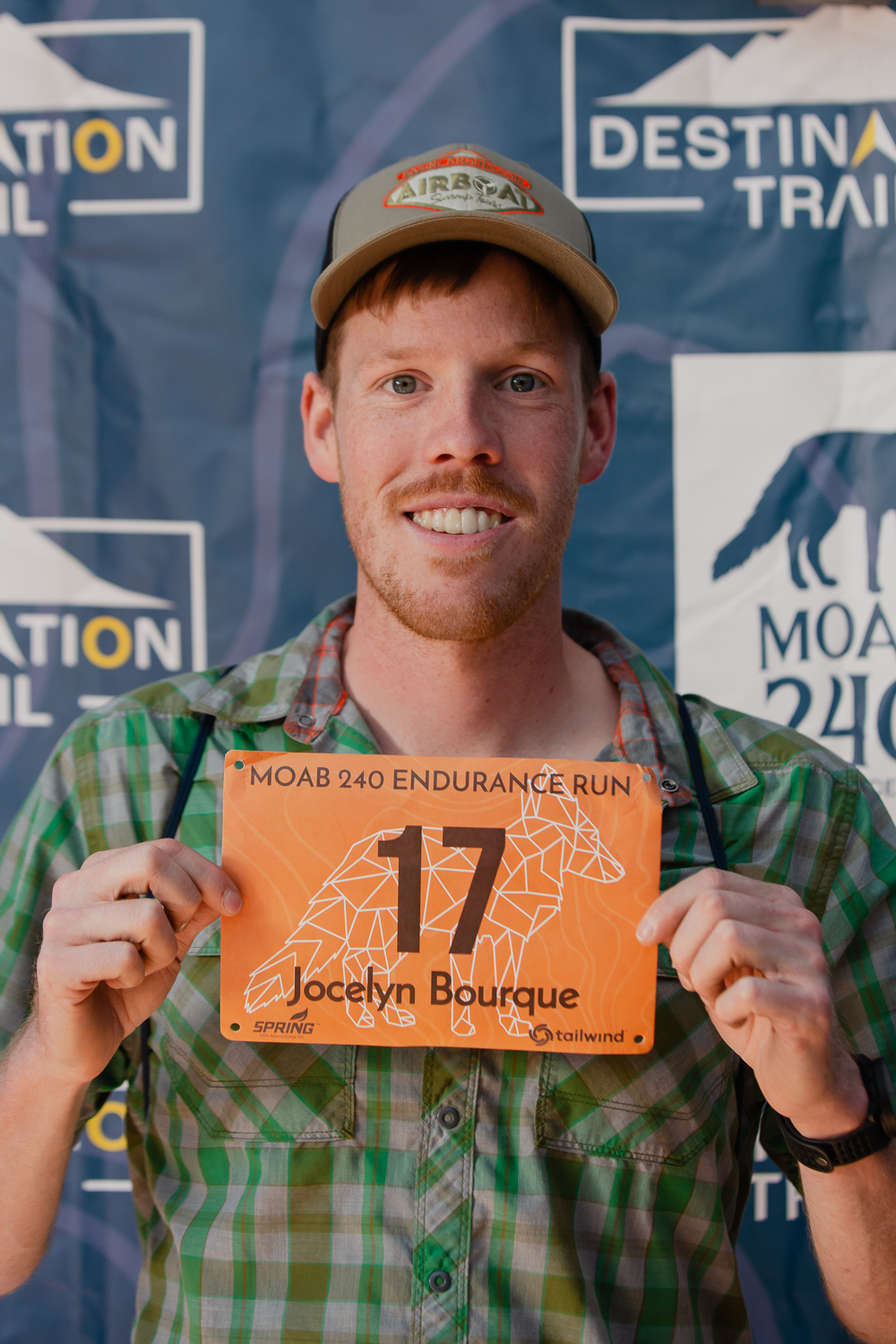
For the last 170 miles of the Moab 240, runners were allowed to have a pacer assist them who is generally responsible for aiding the runner in navigating the course, maintaining a healthy pace and encouraging them to rest and eat when necessary.
Capt Bourque had one pacer present who assisted him for 100 miles, telling him stories to keep him engaged and making sure he did what was necessary to keep moving forward even while he was deeply fatigued.
The highlight of the event for Capt Bourque was just simply making it to the Moab 240, as he described the trail to be serene at times shifting from the dry heat of the desert to brisk mountain trails sprinkled with snow.
The Moab 240, however, was not all highs as the race’s elevation gain impacted Capt Bourque’s ability to run on the third day. He described the lowest moment of the race being an instance where he came across two fellow competitors who were completely delirious due to lack of sleep, dehydration or injury.
One lost runner had done an extra six miles of traveling due to a dead cellphone, his main navigation tool. After staying with the delirious runner for some time and getting him water and provisions, Capt Bourque was left conflicted as to whether he should continue venturing forward, but his pacer stayed back to help the lost competitor while Capt Bourque ran the 5km to the next aid station.
On his journey, Capt Bourque came across a second runner who had taken a big tumble on the trail. A softball sized welt swelled upon the man’s back and his words were incohesive.
“He was just in zombie mode,” Capt Bourque said, “barely able to walk and then his pacer was patting his back saying, ‘Keep it up, keep lifting your poles.’ Then his pacer let go of his back and he wandered off the trail into the woods, so his pacer grabbed him by the vest and they brought him back onto the trail.”
Upon arriving at the designated stop, Capt Bourque informed his and the lost runner’s crew of what happened and medical staff were sent out to help, but the nonchalant reaction of the “zombie” runner’s crew threw Capt Bourque for a loop.
“Why the hell do people run these races if that’s the state you get to on no sleep, running for 200 Miles?” Capt Borque asked himself. “[The “zombie” runner] needs to just lay down and take a nap, but he ended up quitting at that aid station because of his back. After seeing that, I was like: ‘These races are ridiculous. Why would anybody want to do this?’”
For the entire next section of the Moab 240 course, Capt Bourque questioned why he was even running a 240-mile ultramarathon, especially with such negative impacts on the body.
By the time he crossed the finish line, Capt Bourque was so mentally and physically drained that his completion of the race was hard to conceive. The journey, however, is where he found the true beauty in the competition.
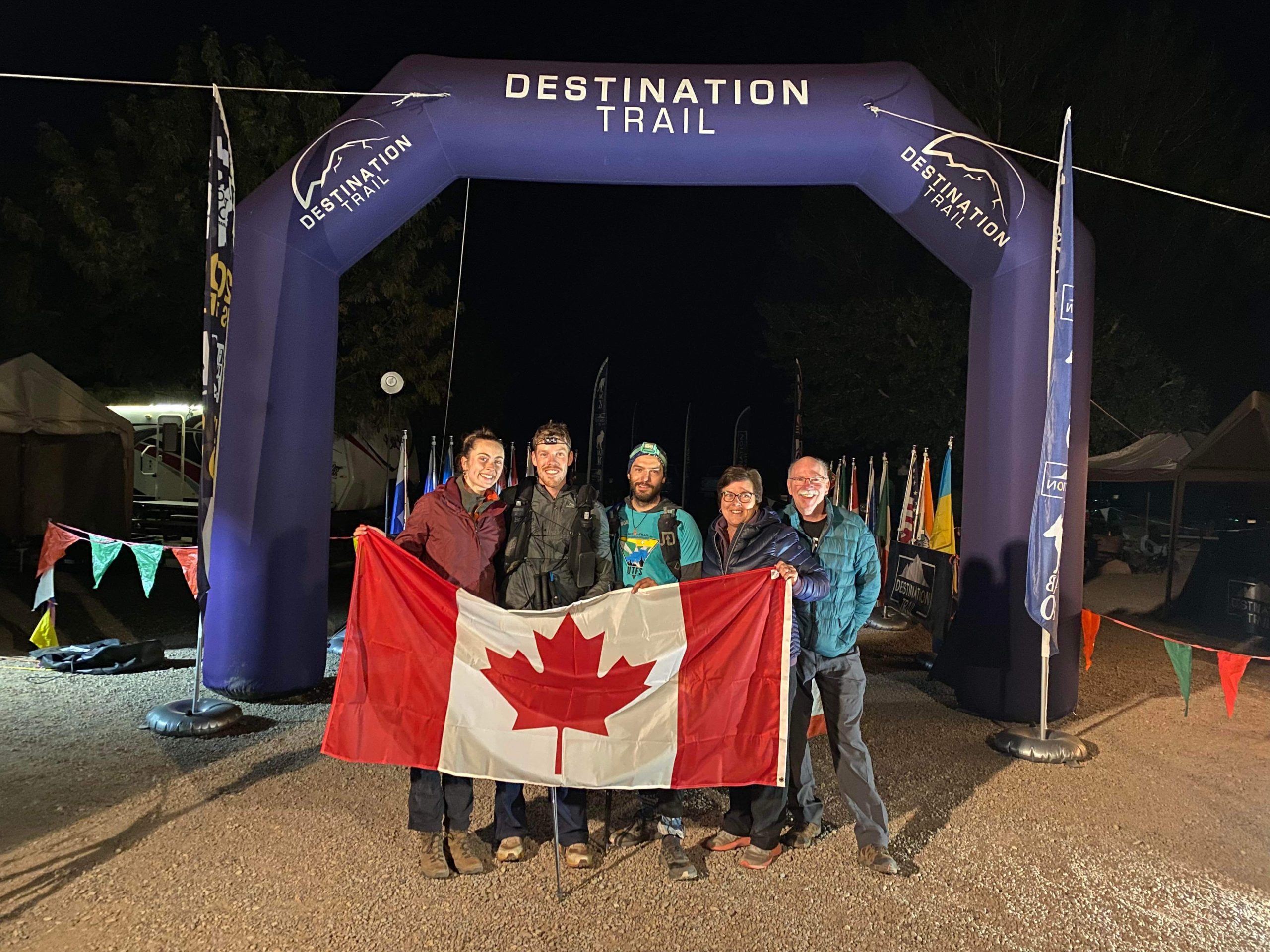
“It was kind of surreal, he said. “It felt like I was teleporting because… there was 12 hours of daylight and 12 hours of night.”
With the elevation bringing him and his pacer up the mountainous portion of the course, Capt Bourque watched the sun rise from 10,000 feet, changing the environment completely as it warmed the surface of the land. He even got to see some wild deer roaming around at different moments of the race.
“It was beautiful,” he said.
As he continues to chart his path in the world, Capt Bourque remains a beacon of inspiration, embodying the spirit of endurance and resilience that defines the very essence of the sport and the Canadian Armed Forces (CAF). His journey is a testament to the power of the human spirit to overcome, endure and triumph.
“[Completing the Moab 240] just goes to show that what we think is possible is all relative and our perceived limits aren’t fixed,” he said.
By: Caleb Hooper





